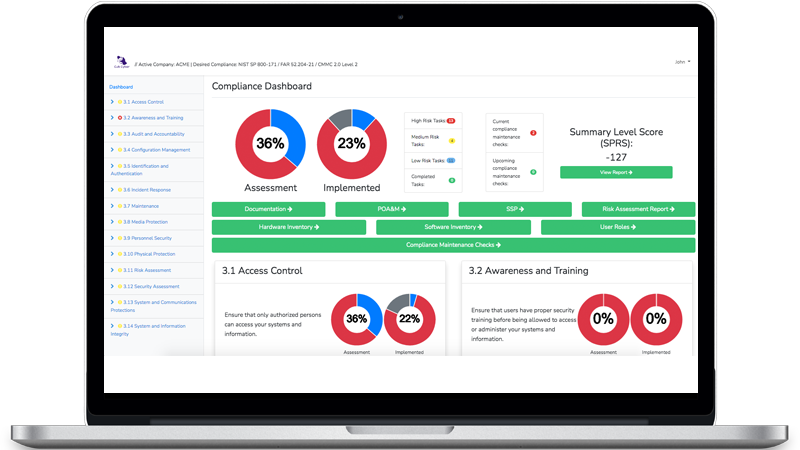
Book a Discovery Call
- How long does it take to become compliant?
- How much does it cost to become compliant?
- See a demo of our solution

Quick & Simple
Whether you need to meet and maintain your compliance requirements, help your clients meet them, or verify supplier compliance we have the expertise and solution for you